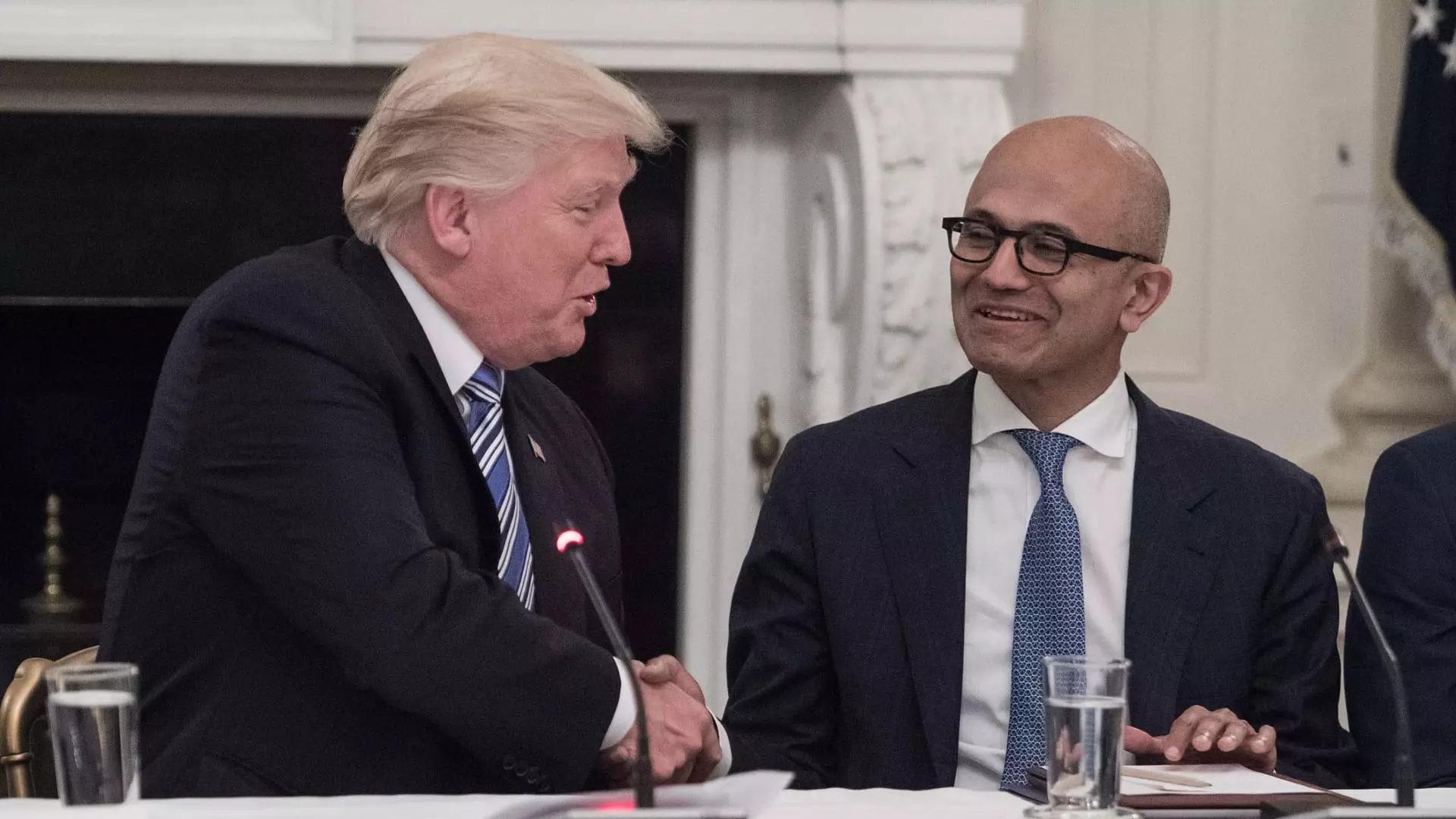In a remarkable display of corporate political affiliations, Microsoft has announced a significant $1 million donation to President-elect Donald Trump’s inauguration fund, mirroring similar contributions made by several tech industry giants. Google, Meta, and other influential firms such as Tesla have all pledged similar amounts, showcasing a coordinated financial support system for Trump’s upcoming presidency. This trend raises questions about the motivations behind such contributions and the implications for the technology sector at large.
The decision by major tech firms to contribute substantial sums to Trump’s inauguration highlights a strategic maneuvering within the industry. In the past, contributions to political campaigns and initiatives were often viewed with skepticism; however, an analysis of this environment suggests that these donations often serve dual purposes. Firstly, they establish goodwill with political figures whose policies can directly impact the technological landscape, and secondly, they consolidate power among leading firms that share common interests. Contributions of this nature indicate a move towards bipartisan support where corporate interests are less about individual candidates and more about collective industry trends.
The alignment of these tech giants with Trump’s administration is not purely an act of charity; it reflects deeper strategic interests within the corporate world. For instance, Microsoft’s excitement towards potential advancements in artificial intelligence (AI) policy under Trump exhibits an awareness of future opportunities for growth. Their past contributions under previous administrations, including both Trump and Biden, suggest a philosophy of engagement aimed at shaping policies that benefit their operations and innovations. Brad Smith, Microsoft’s vice chair, has expressed a strong desire for the U.S. to enhance its international strategy surrounding AI, further indicating a proactive approach in managing potential regulatory outcomes.
Microsoft CEO Satya Nadella’s previous consultations with Trump and other key players signal an active pursuit of influence. By attending high-profile tech roundtables and negotiating critical deals, such as the acquisition of TikTok, Nadella positions Microsoft within an influential network that could direct policy decisions in the tech domain. The involvement of figures like Elon Musk, who has already taken on an advisory role with Trump, suggests a burgeoning alliance that may not only steer corporate agendas but also potentially reshape technology regulations moving forward.
The significant monetary contributions from leading technology firms to Trump’s inauguration fund reveal much about the intertwining of corporate interests and political strategies in today’s socio-economic climate. As companies like Microsoft, Google, and Tesla navigate this complex landscape, the larger question remains: will this collaboration foster a progressive technological environment, or will it lead to an imbalance that prioritizes corporate welfare over public interest? The resurrection of Trump’s presidency and the ensuing policies will likely affect the trajectory of the tech industry for years to come, presenting both challenges and opportunities for stakeholders involved.

